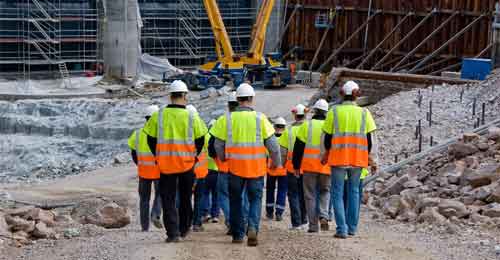The construction industry, often considered the backbone of infrastructure development, offers a myriad of advancement opportunities for individuals who begin their journey as labourers. This article delves into the various career paths available within the construction sector and showcases the incredible success stories of those who have transitioned from labourers to leaders. From mastering technical skills to developing leadership qualities, the journey from the ground up is filled with promise and potential.
Apprenticeships: Building a Strong Foundation
Apprenticeships serve as a solid starting point for those entering the construction sector. Aspiring professionals gain hands-on experience while working alongside seasoned experts. John Parker, a former apprentice, recounts, "Starting as an apprentice gave me a profound understanding of the trade. It was the foundation on which I built my career." Apprenticeships allow individuals to earn while they learn, setting the stage for upward mobility.
Technical Specialists: Mastering Craftsmanship
Becoming a technical specialist offers a path for those who are passionate about honing their skills in a specific trade. From plumbers to electricians, these professionals play a crucial role in construction projects. Mary Thompson, a skilled electrician, states, "I took pride in mastering the intricate details of electrical systems. It's a field that demands expertise." Technical specialists are in high demand and often progress to supervisory roles.
Project Management: Orchestrating Success
For those inclined towards organisation and leadership, project management offers a compelling avenue. As projects become more complex, efficient management becomes paramount. David Collins, a seasoned project manager, notes, "Coordinating various aspects of a project is like conducting an orchestra. It requires strategic thinking and effective communication." Project managers oversee budgets, timelines, and teams, contributing to the successful execution of projects.
Construction Supervision: Guiding the Team
Supervisors play a pivotal role in ensuring that construction sites run smoothly. They manage teams, enforce safety protocols, and maintain quality standards. Sarah Rodriguez, a construction supervisor, emphasises, "Leading a team on-site demands adaptability and decision-making. It's about fostering a collaborative environment while upholding standards." Supervisors bridge the gap between management and workers, making them essential figures in the industry.
Safety and Compliance: Prioritising Well-being
Safety specialists focus on ensuring that construction sites adhere to safety regulations. They conduct inspections, implement protocols, and promote a culture of safety. Mark Johnson, a safety officer, highlights, "Keeping everyone safe is the ultimate goal. It's about preventing accidents and fostering a culture of well-being." Safety professionals contribute to a healthier work environment and are integral to project success.
Entrepreneurship: Building Your Own Path
Some individuals leverage their experience and expertise to establish their own construction businesses. Entrepreneurs take on the challenges of business development, project acquisition, and client relations. Jessica Carter, a successful construction entrepreneur, shares, "Starting my own business allowed me to implement innovative ideas and create a unique identity in the industry." Entrepreneurship offers autonomy and the opportunity to shape the industry's landscape.
FAQs
How long does it take to transition from a labourer to a leader in construction?
The timeline varies based on factors such as skills acquired, dedication, and available opportunities. Some individuals progress within a few years, while others may take a decade or more.
Are there opportunities for advancement without formal education?
Yes, the construction industry values hands-on experience and skill development. While formal education can accelerate growth, many professionals have advanced solely through on-the-job learning.
What qualities are essential for successful leadership in construction?
Effective communication, problem-solving, adaptability, and the ability to manage teams are critical traits for leadership roles in construction.
Can women thrive in leadership positions within the male-dominated construction industry?
Absolutely, the industry is becoming more inclusive, and many women have excelled in leadership positions, bringing diverse perspectives and innovation.
Is the construction industry affected by technological advancements?
Yes, technology is reshaping construction processes, emphasising the need for digital literacy and adaptability in addition to traditional skills.
How can one balance technical expertise and leadership skills?
Continuous learning and seeking mentorship can help individuals strike a balance between mastering their trade and developing leadership qualities.
The construction industry holds a world of possibilities for those willing to start as labourers and ascend to leadership positions. The stories of individuals like John, Mary, David, Sarah, Mark, and Jessica serve as testament to the potential growth and advancement opportunities within the sector. Whether one's journey involves mastering technical skills or cultivating leadership qualities, the construction industry is a realm where dedication and hard work pave the way for a rewarding career journey.









































































